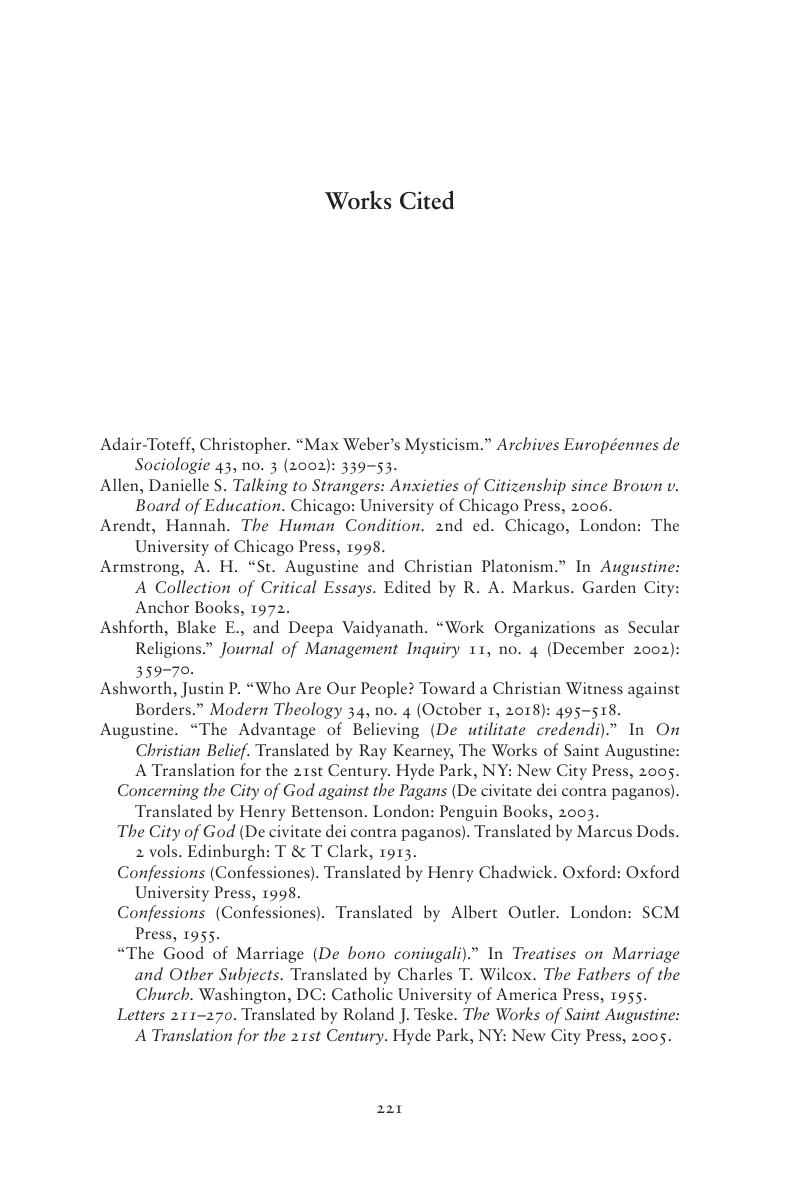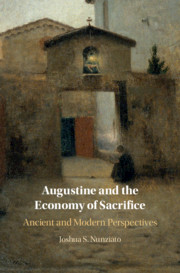Book contents
- Augustine and the Economy of Sacrifice
- Augustine and the Economy of Sacrifice
- Copyright page
- Dedication
- Epigraph
- Contents
- Acknowledgments
- Introduction
- 1 Mortal Economies
- 2 Unacknowledged Sacrifices
- 3 Sacrificial Acknowledgment
- 4 Sacrificial Community
- 5 Sacrificial Economy
- Conclusion
- Works Cited
- Index
- References
Works Cited
Published online by Cambridge University Press: 01 October 2019
- Augustine and the Economy of Sacrifice
- Augustine and the Economy of Sacrifice
- Copyright page
- Dedication
- Epigraph
- Contents
- Acknowledgments
- Introduction
- 1 Mortal Economies
- 2 Unacknowledged Sacrifices
- 3 Sacrificial Acknowledgment
- 4 Sacrificial Community
- 5 Sacrificial Economy
- Conclusion
- Works Cited
- Index
- References
Summary

- Type
- Chapter
- Information
- Augustine and the Economy of SacrificeAncient and Modern Perspectives, pp. 221 - 229Publisher: Cambridge University PressPrint publication year: 2019



